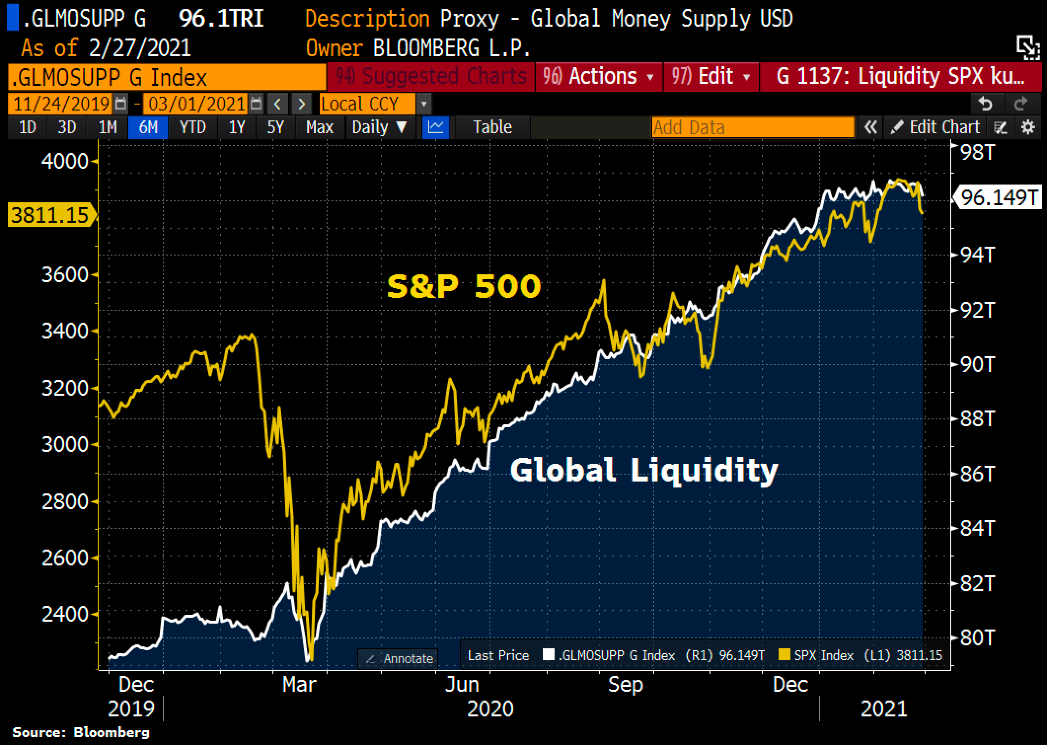Investment Strategies
Stay Truly Diversified When Markets Get Noisy - Blu Family Office

The dramas of 2020 haven't been followed by a period of calm this year. Quite the reverse. So what should wealth advisors do and how should they help HNW and UHNW individuals frame their decision-making?
With so much turmoil and headline-making stories, it’s at
times tough for advisors to keep their clients’ feet on the
ground. Yesterday, for example, cryptocurrency trading platform
Coinbase held its initial public offering and it fetched a market
valuation of $85 billion. The GameStop episode earlier this year
(see
a commentary here), or the surge in IPOs of Special Purpose
Acquisition Companies (see
an article here), speak to strong equity market
sentiment - but possibly not all based on solid fundamentals.
What to make of all this from a wealth management angle?
Blu Family
Office, the European organisation, takes a look at these
questions and more. The insights come from Christian Armbruester,
chief investment officer and one of Blu’s founders. The editors
are pleased to share these insights and welcome responses. The
usual editorial disclaimers apply; to jump into the debate, email
tom.burroughes@wealthbriefing.com
and jackie.bennion@clearviewpublishing.com
As if 2020 wasn’t strange enough, this year has literally started
off with a bang. For the first time since the British sacked
Washington in 1814, we had a mob storming the Capitol. Then there
was Gamestop and the mother of all short squeezes, which resulted
in some of the most fundamentally unsound companies reaching new
highs. If that wasn’t enough, we also had the collapse of supply
chain financing when Greensill imploded, and we saw the dangers
of betting more than you have, when Archegos brought some of the
biggest investment banks to their knees. All of that and we have
barely made it out of the first quarter of 2021. What does it all
mean, what awaits us for the rest of the year, and how are we to
position ourselves as investors against all of these
happenings?
Whenever there is a market crash, there are direct and indirect
effects. Foremost, it was about the virus, the market sell-off
and the utter panic of when we could expect things to get back to
normal again. It is estimated that central banks have pumped more
than $20 trillion into the global economy and they are far from
done. Interest rates are at rock bottom and fiscal stimulus is
just starting. These actions on an unprecedented scale have
resulted in global equities not only recovering all of their
losses but going on to make new record highs.

Whereas markets have gone up in a straight line, individual
stocks, bonds and also commodities have been much more volatile.
Historically, machines that trade systematically have used
volatility to make money and bring things back in line. However,
with people sitting at home with little else to do but trade
stocks in their online brokerage account, things became very
distorted. So much so that the machines got confused. Historical
patterns simply don’t repeat themselves when you have 80 million
people trading on rumours in Reddit chat forums. Hence, it has
been the case that volatility has begot more volatility which
makes it difficult to predict where things go from here. That is
before we have taken into account so called “special situations”
whereby money managers have been caught spectacularly wrong
footed or committed fraud to cover up mistakes in risk
management.
The only thing to do when things are utterly unpredictable is not
to lean oneself too far out of the window and by that we mean:
taking too much risk. It so happens that people have many
different opinions when it comes to not only defining, but also
quantifying risk. Probabilities, correlations, volatility and all
the mesmerizing mathematics in the world can pretty much tell us
whatever we want to know, but in this case, it really is a matter
of keeping it simple.
If Bill Hwang had come to you and asked to borrow eight times
more than he had, would you not have thought that maybe he was
taking too much risk before he lost $20 billion in a matter of
hours? Moreover, if you had too much money tied up in things
which would not allow you access to your money for a decade,
would you not have thought about what were to happen if you
needed a bit of cash for a (very) rainy day? And if someone
promises you the trade of the century, yet you know the company
was bankrupt, would you still buy the stock?
Rule number one, when it comes to investing is that if ever you
find yourself thinking about that one trade that could make you
rich or if it were to go wrong would put your entire fortune at
risk, then you are probably doing something wrong. The name of
the game is to keep playing the game. So forget the fancy risk
models, ignore the definition of asset classes and for goodness’
sake, don’t listen to a salesman who gets paid no matter what you
do. Spread your money across as many disparate things as possible
and make sure you own at least twenty different investments. That
is when you are truly diversified statistically, and it is about
the only thing we know for certain, brave new world or not.
